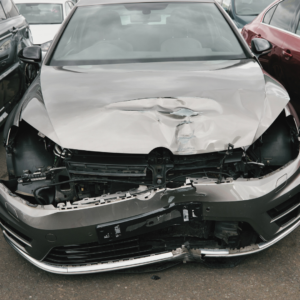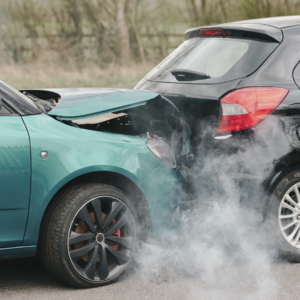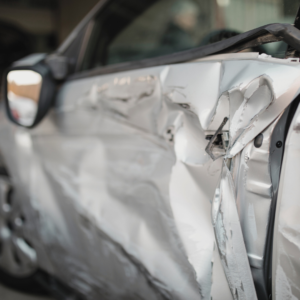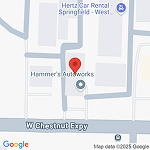Even if you have been in an accident before, it’s easy to become overwhelmed by the insurance claim process. You may even wonder if repairing car damage after filing the claim is worth it.
This article will address this question and provide answers to related concerns, including self-repairs, loan implications, insurance coverage, and more.

Can I Repair the Car Damage Myself?
Yes, you can choose to repair the car yourself rather than seek out an auto body shop. However, there are a few things to consider:
- Insurance Payment: If your insurance company has already issued a payment for the repairs, you can use that money to purchase parts and tools for the repair.
- Expertise: Ensure you have the necessary skills and knowledge to perform the repairs safely and correctly.
- Warranty: Keep in mind that DIY repairs may void any warranties on your car or the parts you use.
- Safety: Self-repairs might not meet safety standards, potentially compromising the vehicle’s safety.
While DIY repairs may sound like a good cost-saving measure, certified OEM (Original Equipment Manufacturer) professionals are specifically trained to repair collision damage. Furthermore, they have the expertise and the tools to ensure repairs are done correctly and safely, maintaining the integrity and value of your vehicle.
What If I Have a Car Loan?
If you have a car loan, your lender may require you to repair the car to protect their financial interest in the vehicle. Most lenders have stipulations in the loan agreement that require the car to be maintained in good condition.
Failing to repair the car could violate these terms and lead to complications with your loan, such as increased interest rates or even repossession.
Could I Lose Insurance If I Don’t Repair the Car?
Not repairing your car after an insurance claim generally won’t cause you to lose your insurance, but it can have other implications:
- Future Claims: If you get into another accident, the insurance company may not cover damages that overlap with the previous unrepaired damage.
- Policy Renewal: Your insurance company might be less willing to renew your policy if they consider your car a higher risk due to unrepaired damage.
What If I Don’t File an Accident Claim?
Choosing not to file an accident claim is an option, but it comes with risks:
- Out-of-Pocket Costs: You’ll be responsible for all repair costs.
- Hidden Damages: Not filing a claim means any hidden damages won’t be assessed by a professional, potentially leading to safety issues.
- Record Keeping: Without a claim, there’s no official record of the accident, which could affect future claims or sales of the car.

What Happens If My Car Repair Costs Are Different from the Insurance Estimate?
If your repair estimate costs differ from the insurance estimate, you have a few options:
- Supplemental Claim: You can file a supplemental claim with your insurance company to cover additional costs.
- Out-of-Pocket: You can pay the difference out of pocket if the costs exceed the estimate.
- Negotiate: Ask your collision repair shop for help. Or better yet, choose an auto body shop that makes assisting with the insurance claim part of the service. For instance, Hammer’s Autoworks works directly with customers’ insurance companies to help ensure the necessary repairs are covered.
Certified OEM professionals can help accurately assess repair needs and work with your insurance company to ensure all necessary repairs are covered, preventing surprises and additional out-of-pocket expenses.
When Is It Not Worth Repairing a Car?
Deciding whether to repair or replace your car after an accident depends on a couple factors:
- Repair Costs vs. Car Value: If repair costs exceed the car’s current market value, replacement is often the better option.
- Age and Mileage: Older cars with high mileage may not justify the investment in extensive repairs.
By considering these factors and understanding your options, you can make an informed decision.
Seeking the expertise of certified OEM professionals ensures that your vehicle is repaired to the highest standards, safeguarding your safety and investment.
Key Points to Consider
- Extent of Damage: Significant structural damage may render repairs impractical.
- Repair Costs vs. Car Value: High repair costs relative to car value suggest replacement.
- Insurance Settlement: A total loss declaration from the insurance company often favors replacement.
- Frequency of Previous Repairs: A history of frequent repairs indicates ongoing issues.
- Age and Mileage: Older cars with high mileage are less likely to be worth repairing.
- Safety Concerns: Compromised safety features make replacement a safer choice.
- Hidden Damages: Potential unseen issues may lead to ongoing problems.
- Sentimental Value: Weigh emotional attachment against practicality and safety.

In Summary
If you’ve been in an accident and need guidance on repairing or replacing your car, Hammer’s Autoworks is here to help. Our certified OEM professionals provide honest assessments and top-quality repairs to ensure your safety and satisfaction.
Navigating the aftermath of an accident can be challenging, but with the right information and expert advice from trusted auto body repair shops, you can make the best decision for your situation.

